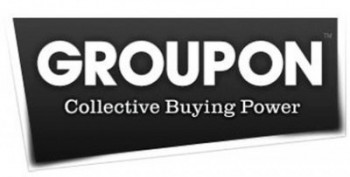 Do you remember when Groupon aired a series of TV ads during the Super Bowl to raise awareness about their company and their passion for Tibet and the Brazilian Rainforest coupled with discounts of Tibetan food in Chicago and Brazilian bikini waxes in NYC? The tasteless ads completely bombed and upset many people in the nonprofit community. Like many other ad and social media fiascos though, people eventually moved on. Interestingly Groupon is now courting the nonprofit and association world to purchase Groupon deals. Maddie Grant over at Social Fish says nonprofits need to be aware of the pitfalls and do their homework first. Grant also highlights a series of articles that depicts Groupon as a Ponzi scheme and bad for business.
Do you remember when Groupon aired a series of TV ads during the Super Bowl to raise awareness about their company and their passion for Tibet and the Brazilian Rainforest coupled with discounts of Tibetan food in Chicago and Brazilian bikini waxes in NYC? The tasteless ads completely bombed and upset many people in the nonprofit community. Like many other ad and social media fiascos though, people eventually moved on. Interestingly Groupon is now courting the nonprofit and association world to purchase Groupon deals. Maddie Grant over at Social Fish says nonprofits need to be aware of the pitfalls and do their homework first. Grant also highlights a series of articles that depicts Groupon as a Ponzi scheme and bad for business.
Why Groupon Can Hurt Your Organization

Lets say you do a Groupon deal and run a 50% discount off your association membership, it could be difficult for you and others in the association space to come back to the pricing levels that your organizations received previously, said Francois Gossieaux over at The Social Customer. “Check out Utpal Dkolakia’s recent study on Groupon. 32% of companies said that the Groupon campaign was unprofitable with only 25% of redeemers buying additional products beyond the ones offered through the coupon and only 15% of coupon users coming back.”
Seven months ago, The NY Times reported that Groupon said that more than 95 percent of its merchants claimed that they wanted to run another discount. But according to a Rice University more than 40% of Groupon’s merchants would want to do it again.
The criticism of Groupon doesn’t end with profitability. Many also complain about their confusing legal terms and conditions. According to Rakesh Agrawal, a TechCrunch contributor “the Groupon merchant agreement is incredibly lopsided in favor of Groupon, as are most agreements where one party doesn’t really have the ability to negotiate.”
Agrawal also notes the following:
- No guarantee that the offer will run. (1.1) Just because you do the deal doesn’t mean Groupon will run the offer. It has the option to, but it doesn’t have to.
- Termination. Groupon can terminate the voucher and the entire agreement at its discretion, but the merchant cannot.
- Exclusivity. It’s weird to see exclusivity buried under a heading of “Term and Termination”. Note that the agreement has two dates, the date of the agreement and the date that the offer runs. Because merchants have no control over the scheduling of the offer, they could be tied to an exclusivity for months in which they can’t run any other online deals. Read literally, merchants couldn’t even Tweet out an offer to followers about a special they were offering for the night. Merchants are bound by this exclusivity even if Groupon never runs their offer.
If your nonprofit or association is seriously considering purchasing a Groupon deal, definitely read their TOS before you sign the dotted line.



COMMENTS